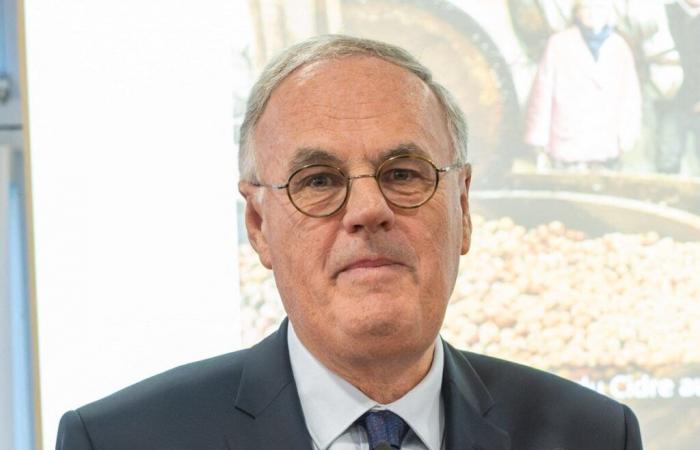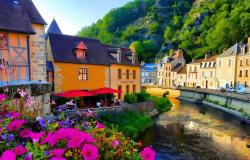Par
Vincent Guerrier
Published on
Jan 22, 2025 at 6:30 a.m.
Twenty-seven deaths on the roads. This is the terrible observation of the year 2024 in Orne. President of the Department of Orne, Christophe de Balorre analyzes the causes of this sad assessment, and launches a call for general mobilization. It also resolves the question of a possible return to 80 km/h on the roads.
How do you explain this sudden increase in serious injuries and especially road deaths in 2024?
In 2023, 21 killed, and in 2024, 22 killed; these years are comparable over the first 11 months. It is in December that the difference is made: no deaths in 2023 compared to 5 in 2024! Each accident is unique and results from a combination of factors, some of which are difficult to control and inexplicable. For each fatal accident, I go to the scene and our roads department, for its part, provides me with the most detailed factual feedback possible. Causes have been precisely established: alcohol and drugs, in particular, and even speed.
Some come back regularly: inattention (GPS, mobile phone, tablet, etc.), weather conditions, an obstacle. Others are directly linked to the state of health of the driver, to medical treatments, sometimes among the elderly, or even to discomfort while driving. The question of young licenses, too little experienced, also arises. The relaxation of behavior, on usual or fleeting routes, must still be taken into account, while knowing that, everywhere, accidents and particularly face-to-face encounters remain completely inexplicable.
In its road repairs, can the Department find solutions or adjustments to reduce speeds on certain sections?
Road safety is a priority for the Departmental Council, for the president and all elected officials, but also for our roads department, which manages more than 6,000 km of roads. Around ten agents are dedicated to road safety and a sophisticated organization makes it possible, on the ground, to ensure active monitoring and to identify the slightest problem on the roadways, with the sole aim of remedying them without delay. All our studies are conducted using precise and verified data, and each decision taken is then subject to an evaluation.
Following a serious or unusual type of accident, the search for causes can lead to the recommendation of new developments, works or reinforcement of signage, and even the reduction of the maximum authorized speed. The Departmental Council does this very regularly, just as it subsidizes the projects, often costly, of municipalities and intermunicipalities, which aim to improve security, in schools or other busy public places, in crossroads, in entrance to town, activity zone.
-While knowing that no system can impose or guarantee strict compliance with the Highway Code, the services of the Departmental Council are more than ever mobilized to improve traffic conditions, including for those who make driving errors or infractions: adhesion of surfaces, maintenance of markings, danger signs, safety barriers, etc. Even if there is no remedy for the unconsciousness of certain road users, we are not giving up! “
Excessive speed is a factor in several fatal accidents. Are you considering reducing the speed to 80 km/h, as in many departments in France?
Orne was one of the very first departments to return to 90 km/h and I note that many others followed. To date, more than half of the departments have returned to 90km/h, which is significant! When it comes to road accidents, it is excessive and inappropriate speeds that are to blame, not the maximum authorized speeds which, too often and unfortunately, are not respected.
When I raised, from July 2020, the maximum authorized speed to 90 km/h on part of the departmental roads, I systematically excluded sections with reduced and accident-prone characteristics; almost 4,000 km – two thirds of the network! – are therefore still limited to 80 km/h. It is for this reason that we have not measured any negative impact of this decision in Orne since 2020. The analysis, case by case, proves that the return to 90 km/h does not affect either the number of collisions and road exits, nor their severity, on the contrary. And you just need to take the Nationale 12 between Alençon and Paris to be convinced: the speed limit is 80 km/h – even in a straight line! – disrupts the behavior of motorists who end up getting angry and doing anything!
What do you expect from state services to improve road safety?
The Gendarmerie, the Police and the State services, but also our municipal police carry out coordinated work which is remarkable, both in terms of prevention and with regard to repression, greatly reinforced by the presence of 46 fixed radars in Orne, including 40 on our departmental roads. For its part, the Departmental Council participates in the development of the educational radar network, in partnership with mayors.
We cannot talk about road safety without calling for collective awareness! Nowadays, as vehicles and infrastructure become more and more modern and reliable, it is not normal to die on the road. All the basic rules must be respected, this is the only way to reverse the trend. » No more deaths on our roads in 2025! »: I call for general mobilization. It's up to everyone to be an actor on a daily basis, personally and sustainably.
Follow all the news from your favorite cities and media by subscribing to Mon Actu.






